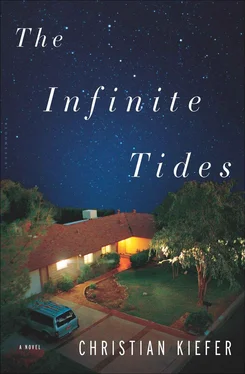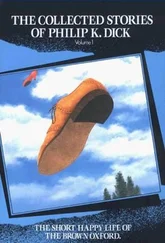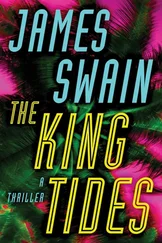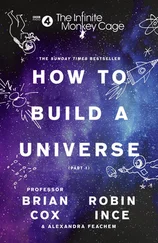Keith did not respond. He wondered what Mullins would say if he simply stopped making appointments with Dr. Hoffmann. He had dreaded the approach of each and every appointment and yet now that the specter of canceling his appointments permanently had been raised he found himself hesitating. It was as if he was on an EVA, stiffly moving in his space suit, and it had been suggested that he remove the tether that connected him to the body of the ISS and even though he knew he would not need to rely on it, the fact that it was present meant that he did not have to think about it at all. The tether was there so that it did not need to be considered. But then he did not know why he thought of this comparison now, for Hoffmann’s appointments were only a source of dread and irritation, a time each week when he knew Quinn would be discussed in the most stark and terrifying ways, with a bluntness that Keith still found jarring and troubling. And this time he himself had said the words: “My daughter’s dead.” He could not recall ever saying it before. Not like that. Not with that level of blunt clarity. He never wanted to hear such a thing. Not from himself. Not from Hoffmann. Not from anyone.
“I don’t know,” he said at last.
“Good. So let’s talk about that next week.”
“You want to have a counseling appointment about whether or not to have more counseling appointments?”
“That’s exactly what I want to do,” Hoffmann said.
Keith sat there for a moment with the phone to his ear. Then he said, “OK, then.”
The phone call lasted a few more minutes and when it was done he clicked the phone closed and sat for a long stretch in the silence of the house. Maybe during the next conversation he would tell Hoffmann that he was through with the appointments but then he worried about the effect the cancellation would have on Mullins and the Astronaut Office and his ability to return to Houston and he was not sure he wanted to run that risk.
The house a vacancy and his footfalls wearing a path through its carpeted spaces. He drank a beer from the refrigerator. Then another. He was going to see Jennifer that evening and he hoped more than ever that she would have sex with him again. But the clock moved so very slowly. His own motion a curved and distended zigzag drifting ever away. My daughter’s dead. Quinn. My god.
The sun had disappeared behind the houses on the hill beyond the vacant lot and the sky glowed with a furious spectral blue that cut all the corporeal things of the earth into individual black darknesses. Keith Corcoran too, stepping into that blue night of silhouettes. Whatever feeling of confusion or defeat or rage or frustration he felt or might have felt after the conversation with Hoffmann had faded into the anticipation of seeing Jennifer again, a feeling not unlike that of a child on Christmas Eve waiting for the multicolored promise of the dawn. This time, though, it had been dusk he had been awaiting and the present he hoped to open was not for any child. Now at last the time had arrived and there was Jennifer’s house across the street, the porch light glowing a pale yellow the color of the moon. His stomach felt light and the night air was still warm but moved against his face softly like a dark and gentle hand.
And that was precisely the moment when Peter Kovalenko’s voice came booming out of the darkness at last: “Astronaut Keith Corcoran!”
The voice was sudden enough to make Keith jolt in surprise. “Christ,” he said. His own voice sounded loud and flat in the open air of the night. He had stopped walking and peered in the direction of the voice, into the black emptiness that was the vacant lot.
“Come, let me show you something,” the voice called to him.
“I’m just heading out,” he called. He paused then, waiting, but there was no response. Had he been heard? He looked at Jennifer’s house again, then up the street. The streetlamps not yet activated and the field beyond the end of the cul-de-sac was a black pool. He had been expecting Peter to want to talk with him about what had happened and he knew there was little use in avoiding the interaction but how he wanted to. At least now it would be a short exchange. It would have to be. He would listen to the apology of Peter Kovalenko the Ukrainian. Then he would tell him, as graciously as possible, that he was glad to help and would do it again if such a situation were to arise. Is that not what an astronaut would do? Then the conversation would be over and he would continue on to Jennifer’s.
He stood in the dusk-colored darkness, unmoving for a long moment, and then at last said, “Hang on,” and turned and moved up the cul-de-sac to where the concrete ended and he stepped over the chain there and into the dirt and the weeds. The field was a black emptiness of unresolved obstacles. “Christ, I can’t see anything,” he said.
“There is path on left,” Peter’s voice came. “Watch out for thistles.”
He stepped to the left, objects shifting in his view so that it appeared as if everything at his feet was in motion all at once and in all directions. His shoes crunched into what sounded like dead leaves but which felt hard and stiff, like a bundle of small sticks gathered together underfoot.
“Little further, I think,” Peter said.
He took a few more hesitant steps in that direction and then could just make out a pale path threading through waist-high thistle.
Twice he stumbled but at last he arrived at Peter’s side and Keith extended his hand, his eyes still not quite adjusted to the night, and Peter took it and they shook and Peter said, “You did me great service.”
“Not a problem,” Keith said.
“I’m embarrassed,” Peter said.
“No need.”
“I don’t want to talk more with this. Only with thanks.”
“OK, then,” Keith said. There was a brief pause and he expected Peter to continue his apology despite his statement to the contrary but he did not do so, instead standing in the dark silence, his shape emerging out of it as Keith’s eyes adjusted to the twilight. The telescope reflected a stripe of radiance, the last of the sunset.
“Let me show you something,” Peter said.
“It’s all right,” Keith said. “I’m just on my way out.”
“Bah,” Peter said. “I’m happy to do this.” He leaned into the eyepiece and then stepped back and motioned Keith toward it. “Hard to see now because we are too early, but still there.”
Keith leaned in and looked through the telescope, the circle of light shifting as he tried to align his vision with it. There might have been something there, a kind of blur, but all he could really make out was the luminescent blue field of the eyepiece. “I can’t really see anything,” he said at last.
“Yes, too light up there maybe,” Peter said. “M57. Ring Nebula. Better to see later.”
“I’ve heard of it,” Keith said.
“Yes, is famous nebula,” Peter said. “In constellation Lyra. Between stars.”
Keith took his eye from the telescope and looked into the low eastern sky toward which it pointed, out past where the cul-de-sac emptied onto Riverside, the houses there quiet and still and the streetlights yet dark and above them a scattering of dim stars.
“You see?” Peter said.
“I’ve never been good at finding that stuff.”
“And yet you go up there.”
“Yes, I do.” He returned his eye to the telescope. It was a static thing: like looking at a slightly blurry photograph in the far corner of an empty room. “I’m not an astronomer,” he said.
“I know,” Peter said. “I know this.” It was almost an apology, as if he had said something wrong and then had said something wrong again in covering for it.
Читать дальше












